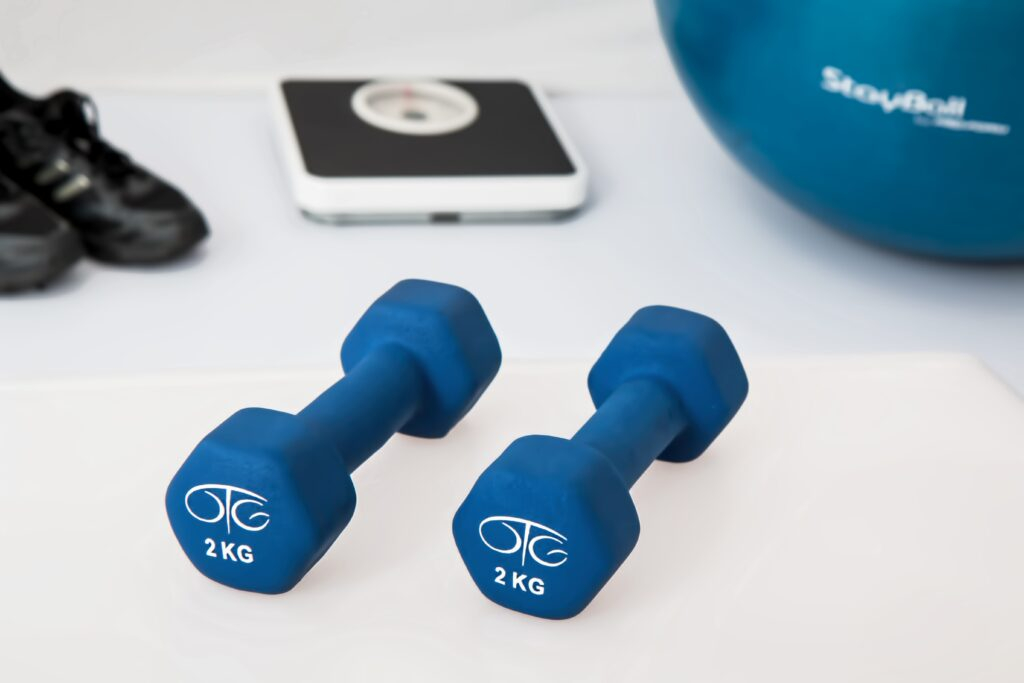How Can I Overcome A Weight Loss Plateau?
So you’ve been working hard, eating healthy, and exercising regularly to shed those extra pounds. Initially, the numbers on the scale were dropping, and you felt motivated and proud of your progress. But now, it seems like you’ve hit a roadblock – a weight loss plateau. It’s frustrating, isn’t it? The scale has become stubborn, refusing to budge despite your continued efforts. But don’t lose hope just yet, because in this article, we will explore some effective strategies that can help you overcome this plateau and get your weight loss journey back on track.

Understanding Weight Loss Plateau
Definition of weight loss plateau
A weight loss plateau refers to a period where you are no longer seeing progress in your weight loss efforts, despite following your diet and exercise routine diligently. It is a common phenomenon that many people experience on their weight loss journey. During a plateau, your body adapts to the changes you have made and your metabolism slows down, making it harder to lose weight. It can be frustrating, but understanding the causes and types of weight loss plateaus can help you overcome them.
Causes of weight loss plateau
There are several factors that can contribute to a weight loss plateau. One common cause is a decrease in metabolic rate. When you lose weight, your body requires fewer calories to function, resulting in a lower metabolic rate. Additionally, your body may become more efficient at using the calories you consume, making it harder to create a calorie deficit. Hormonal changes, such as a decrease in thyroid hormone levels, can also contribute to a plateau. Lastly, psychological factors like stress and emotional eating can hinder progress.
Types of weight loss plateaus
There are different types of weight loss plateaus that you may encounter on your journey. The first is an early plateau, which typically occurs within the first few weeks of starting a weight loss program. It is often the result of water retention as your body adjusts to the changes. The second type is a mid-term plateau, which happens after initial weight loss and can last for several weeks. This plateau is often caused by a decrease in metabolic rate. The third type is a long-term plateau, which can occur after months of steady progress. It is usually a combination of hormonal, metabolic, and psychological factors.
Assessing Your Current Weight Loss Plan
Evaluating your calorie intake
To overcome a weight loss plateau, start by evaluating your calorie intake. If you have been consuming the same number of calories for a long time, your body may have adapted to this level and no longer responds to it. Consider reducing your overall calorie intake by 100-200 calories per day. This slight reduction can help reignite weight loss without causing extreme hunger or deprivation.
Analyzing macronutrient distribution
Another crucial aspect to assess is the distribution of macronutrients in your diet. Aim for a balanced distribution of carbohydrates, proteins, and fats. Carbohydrates provide energy, while proteins help build and repair tissues. Fats play a vital role in hormone production and overall health. Ensure that you are not overconsuming any particular macronutrient and adjust the ratios if needed. Experimenting with different ratios can help stimulate weight loss.
Assessing exercise routine
Your exercise routine plays a significant role in your weight loss journey. Evaluate your current routine and consider if it needs any modifications. If you have been doing the same exercises consistently, your body may have adapted to them, resulting in a plateau. Look for ways to increase the frequency, intensity, or variety of your workouts. Incorporating both cardiovascular exercises and strength training can help boost your metabolism and break through the plateau.
Making Changes to Your Calorie Intake
Reassessing your daily calorie requirements
One effective method for overcoming a weight loss plateau is reassessing your daily calorie requirements. As you lose weight, your body composition changes, and your metabolism adjusts. It is essential to recalculate your calorie needs periodically. There are various online calculators and formulas available that can help you determine your current requirements based on your age, weight, height, and activity level. Adjusting your calorie intake according to these calculations can jumpstart your progress.
Implementing portion control
Portion control is a vital aspect of weight loss. Even if you are consuming healthy foods, overeating can hinder your progress. Evaluate your portion sizes and consider using visual references or measuring tools to ensure you are eating appropriate portions. Be mindful of portion distortion, particularly with calorie-dense foods like nuts, oils, or snacks. Implementing portion control can help create a calorie deficit and facilitate weight loss.
Incorporating intermittent fasting
Intermittent fasting is an eating pattern that involves cycling between periods of fasting and eating. It has gained popularity due to its potential benefits for weight loss and metabolic health. Intermittent fasting allows your body to deplete its glycogen stores and switch to burning stored fat for energy. There are different methods of intermittent fasting, such as the 16/8 method, where you fast for 16 hours and eat within an 8-hour window. It can be an effective strategy to break through a weight loss plateau.
Adjusting Macronutrient Distribution
Understanding the role of macronutrients
Macronutrients, including carbohydrates, proteins, and fats, are essential for your body’s optimal functioning. Understanding their roles can help you make appropriate adjustments. Carbohydrates are the body’s primary energy source, while proteins are the building blocks for muscles, tissues, and enzymes. Fats are necessary for hormone production, brain function, and absorption of fat-soluble vitamins. By ensuring a balanced distribution of macronutrients, you provide your body with the fuel it needs to break through a weight loss plateau.
Increasing protein intake
Increasing your protein intake can have several benefits when it comes to weight loss. Protein is known to increase satiety, meaning it helps you feel full for longer periods, preventing overeating. It also has a higher thermic effect compared to carbohydrates and fats, which means your body burns more calories digesting protein. Moreover, protein is crucial for muscle maintenance and repair, which is vital for a healthy metabolism. Including lean sources of protein, such as chicken, fish, tofu, or legumes, can help overcome a weight loss plateau.
Reducing carbohydrate intake
Reducing your carbohydrate intake can also be an effective strategy to overcome a weight loss plateau. When you consume carbohydrates, your body breaks them down into glucose, which is then used for energy. However, if you consume more carbohydrates than your body needs, the excess gets stored as glycogen or converted into fat. By reducing your carbohydrate intake, you force your body to utilize stored glycogen and fat for energy, leading to weight loss. Focus on complex carbohydrates like whole grains, fruits, and vegetables while reducing refined sugars and starchy foods.
Including healthy fats
Including healthy fats in your diet can support weight loss and overall health. Healthy fats, such as avocados, nuts, seeds, and olive oil, provide essential fatty acids, vitamins, and minerals. They also help promote satiety and stabilize blood sugar levels, preventing cravings and overeating. Be mindful of portion sizes, as fats are high in calories, but do not shy away from including them in your meals. Incorporating healthy fats can enhance the flavor of your food and support your weight loss efforts.

Revamping Your Exercise Routine
Increasing workout frequency
One way to overcome a weight loss plateau is to increase the frequency of your workouts. If you have been exercising three times a week, try adding an extra day or two to your routine. By increasing your physical activity, you create a larger calorie deficit, which can lead to weight loss. Consider incorporating different types of exercises, such as cardio, strength training, or high-intensity interval training (HIIT), to challenge your body and prevent adaptation.
Changing workout intensity
Another aspect to consider is the intensity of your workouts. If you have been following a moderate-intensity exercise routine, try adding some high-intensity intervals. High-intensity exercises, such as sprints, circuit training, or plyometrics, can increase your heart rate and metabolism, leading to greater calorie burn. Alternating between high and low-intensity exercises can also help prevent boredom and keep you motivated on your weight loss journey.
Incorporating strength training
Strength training is crucial for overcoming a weight loss plateau. Building lean muscle mass not only improves your overall body composition but also increases your metabolic rate. Muscles are metabolically active tissues, meaning they burn more calories at rest compared to fat. Incorporate strength training exercises, such as weightlifting or bodyweight exercises, into your routine at least two to three times a week. Focus on compound movements that target multiple muscle groups for maximum effectiveness.
Trying new types of exercises
Trying new types of exercises can be a great way to overcome a weight loss plateau. Your body can become accustomed to certain movements, making them less challenging over time. Consider stepping out of your comfort zone and experimenting with different activities, such as yoga, Pilates, dance classes, or outdoor sports. Not only will trying new exercises provide a physical challenge, but it can also keep your workouts exciting and enjoyable.
Prioritizing Sleep and Stress Management
Understanding the impact of sleep on weight loss
Sleep plays a critical role in your weight loss journey. Lack of sleep can disrupt hormonal balance, leading to increased hunger, cravings, and a slower metabolism. It can also affect your energy levels and motivation to exercise. Aim for seven to eight hours of quality sleep per night to support your weight loss efforts. Establishing a consistent sleep schedule, creating a relaxing bedtime routine, and optimizing your sleep environment can greatly improve your sleep quality.
Implementing strategies for better sleep
To improve your sleep quality, implement strategies for better sleep hygiene. Create a comfortable and calming sleep environment by keeping your bedroom cool, dark, and quiet. Establish a bedtime routine that promotes relaxation, such as reading a book, taking a warm bath, or practicing meditation or deep breathing exercises. Avoid stimulating activities, electronic devices, and caffeine close to bedtime. Consistency is key, so try to go to bed and wake up at the same time each day, even on weekends.
Managing stress levels
Stress can have a significant impact on your weight loss journey by increasing cortisol levels, which can lead to weight gain and hinder fat loss. Managing stress levels is crucial for overcoming a weight loss plateau. Find healthy ways to cope with stress, such as engaging in regular physical activity, practicing relaxation techniques, like yoga or mindfulness meditation, or pursuing hobbies and interests that bring you joy. Prioritizing self-care and taking time for yourself can help reduce stress and support your overall well-being.
Exploring stress-relief techniques
Exploring different stress-relief techniques can be beneficial when overcoming a weight loss plateau. Experiment with various activities or practices to find what works best for you. Some effective stress-relief techniques include deep breathing exercises, journaling, spending time in nature, listening to music, engaging in creative outlets, and seeking support from loved ones. Combining different techniques can provide a comprehensive approach to managing stress and breaking through a weight loss plateau.

Utilizing Support Systems
Enlisting the help of a weight loss coach
Enlisting the help of a weight loss coach can provide valuable support and guidance throughout your journey. A professional weight loss coach can help identify the reasons behind your plateau and create a personalized plan based on your unique needs and goals. They can offer accountability, motivation, and knowledge about effective weight loss strategies. A weight loss coach can also provide support during challenging times and help you navigate any obstacles that arise.
Joining a weight loss support group
Joining a weight loss support group can be an excellent way to connect with others who are going through similar experiences. Sharing your challenges, successes, and strategies with a supportive community can provide motivation and encouragement. Weight loss support groups offer a safe space to discuss your journey, ask questions, and receive advice from people who understand your struggles. Consider joining a local group or participating in online forums or social media communities dedicated to weight loss.
Seeking guidance from a healthcare professional
If you have been experiencing a weight loss plateau for an extended period or have underlying health concerns, it is essential to seek guidance from a healthcare professional. A registered dietitian or a doctor can evaluate your overall health, review your current weight loss plan, and provide personalized recommendations. They can assess any potential medical factors contributing to the plateau and offer evidence-based strategies to help you overcome it. Professional guidance ensures that you are implementing the most appropriate and safe measures to reach your weight loss goals.
Monitoring Progress and Adjusting Goals
Tracking body measurements
Tracking your progress is crucial when overcoming a weight loss plateau. Instead of solely relying on the scale, consider tracking other measurements like body circumference or body fat percentage. These measurements can provide a more accurate representation of your body composition changes. Take weekly or monthly measurements and compare them over time to assess your progress. Remember that weight loss is not linear, and fluctuations are normal. Focus on overall trends rather than day-to-day fluctuations.
Keeping a food and exercise journal
Keeping a food and exercise journal can be a valuable tool in overcoming a weight loss plateau. Track everything you eat and drink, as well as your exercise activities. This journal can help you identify any patterns or areas where adjustments may be needed. It also increases awareness of your daily habits and can prevent mindless eating or skipping workouts. Reviewing your journal regularly allows you to make informed decisions and modify your plan accordingly.
Rewarding milestones
Rewarding yourself when you achieve milestones along your weight loss journey is an essential motivator. Celebrate your accomplishments, whether it be reaching a certain weight, fitting into a smaller clothing size, or consistently following your exercise routine. Choose non-food rewards that align with your goals, such as treating yourself to a massage, buying new workout gear, or planning a fun activity. Recognizing and celebrating your progress can boost your confidence and keep you motivated during the plateau phase.
Setting realistic and achievable goals
When overcoming a weight loss plateau, it is crucial to set realistic and achievable goals. Unrealistic expectations can lead to frustration and feelings of failure. Break down your overall weight loss goal into smaller, manageable targets. Set goals that focus on behavior changes rather than solely on the number on the scale. For example, aim to exercise a certain number of days per week or incorporate a new healthy recipe into your meal plan. Achieving these smaller goals will provide a sense of accomplishment and keep you motivated on your weight loss journey.
Exploring Additional Weight Loss Strategies
Trying alternative diets
If you have tried various strategies and still can’t break through a weight loss plateau, you may consider trying alternative diets. There are several popular diets available, such as the ketogenic diet, intermittent fasting, or the Mediterranean diet. These diets have different approaches to macronutrient balance, meal timing, and food choices. However, it is essential to approach alternative diets with caution and consult a healthcare professional or registered dietitian to ensure they are safe and suitable for your individual needs.
Considering supplements
Supplements can be an attractive option when overcoming a weight loss plateau, but they should not be relied upon as the sole solution. Some supplements, such as green tea extract, caffeine, or conjugated linoleic acid (CLA), have been shown to have modest effects on weight loss. Always consult with a healthcare professional before starting any new supplement regimen to ensure its safety and effectiveness. Remember that supplements are not a replacement for a healthy diet and lifestyle.
Experimenting with intermittent fasting
As previously mentioned, intermittent fasting can be an effective strategy for overcoming a weight loss plateau. Experimenting with different fasting protocols, such as the 16/8 method or alternate-day fasting, can provide a new approach to your weight loss efforts. However, it is essential to listen to your body and ensure that intermittent fasting is suitable for you. Some individuals may experience negative side effects or find it challenging to adhere to certain fasting protocols. Always consult a healthcare professional before starting any fasting regimen.
Exploring medical interventions
When all else fails, exploring medical interventions may be an option to consider. Medical interventions, such as prescription weight loss medications or bariatric surgery, can be effective for those struggling with significant weight loss plateaus or obesity-related health issues. However, these interventions should only be pursued under the guidance of a healthcare professional and after careful consideration of the associated risks and benefits. They are typically reserved for individuals who have not seen success with other conservative weight loss measures.
Seeking Professional Advice
Consulting a registered dietitian
If you are experiencing a weight loss plateau, consulting a registered dietitian can provide expert guidance tailored to your specific needs. A registered dietitian can assess your current eating habits, make appropriate recommendations, and help you develop a personalized plan to overcome the plateau. They can also provide ongoing support, monitor your progress, and address any nutritional deficiencies or concerns. A registered dietitian will ensure that you are implementing evidence-based strategies to support your weight loss goals.
Getting a comprehensive health check-up
In some cases, a weight loss plateau may be indicative of underlying health issues or medical conditions. If you have been unable to break through a plateau despite your best efforts, it is essential to get a comprehensive health check-up. Visit your healthcare provider to assess your overall health, including hormone levels, thyroid function, and metabolic status. Identifying and addressing any underlying medical factors can be critical for overcoming the plateau and achieving successful weight loss.


Pingback: What Are Fat Blockers?